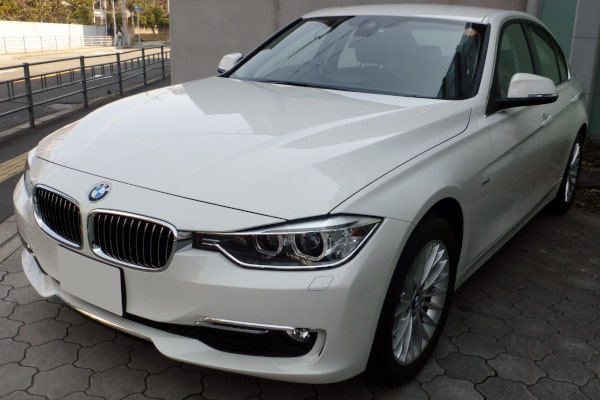Is BMW F30 Reliable? (the Most Important Facts)
BMW F30 was launched back in 2011 and was an all-new car inside out. Boasting an all-new design, smarter and lightweight chassis, refined powertrains, and better interiors, the F30 was loved by consumers and enthusiasts likewise.
F30 had different engines and equipment, was marketed for a diverse genre of buyers, and was a super hit in the market. BMW F30 was also the first 3 Series generation to ditch the coupe body style and was based on an all-new chassis. Let’s have a look at the overall portfolio of the BMW F30, including its reliability, best engines, maintenance, and everything.
Is BMW F30 Reliable?

BMW F30 is generally a very reliable car, apart from a few minor issues that can occur after some years. F30 has a range of reliable powertrains, suspension, and transmission systems. If maintained regularly, BMW F30 can be a very reliable daily runner for years.
F30 was redesigned completely, with an all-new frame and interior. F30 is very nimble to drive and loaded with tons of tech and safety features. Very sturdy in build quality and a solid car to use in routine & tough conditions.
If you’re planning to buy a premium compact car and are concerned about reliability, BMW F30 should be your top pick.
Also read: 5 Best BMWs with Over 300 HP (with Costs)
What are the Most Common Problems with the BMW F30?
BMW F30 is a very reliable and well-built car, but it also has certain issues that pop up after some time or rough usage. These common problems include engine oil leakage, fuel pump problems, faulty water pump, problematic electronics, and steering column vibrations.
These problems, although common, occur only after 125,000 miles or if the car is not maintained properly.
1- Engine Oil Leakage
F30 suffers from a common problem of engine oil leakage, primarily due to worn-out seals and head gasket issues. This leads to poor performance, reduced engine oil level causes over-heating, and other knocking. This problem occurs due to poor maintenance records and usually after 100,000 miles.
2- Fuel Pump Problems
The fuel pump on an F30 can get clogged or damaged, mostly due to poor fuel quality, as it is quite sensitive and fragile. Though not completely a manufacturing fault, it causes problems with engine performance and a premium car ought to have a sturdy fuel pump.
3- Faulty Water Pump
A faulty water pump can cause the radiator system to choke in a BMW F30 and lead to frequent overheating and fatal damage to the engine. It usually occurs after 150,000 miles and is usually due to poor maintenance.
Also read: Is BMW G30 Reliable? (+Common Issues)
4- Problematic Electronics
Some of the electronic parts on a BMW F30 can become problematic, such as power windows and digital cluster gauges. This is not such an alarming issue and occurs usually after 150,000 miles, but costs some serious money to fix as the faulty parts can only be replaced.
5- Steering Vibrations
Due to lousy and wearing engine column components, drivers can feel continuous vibrations and rattle in the steering. It affects the driving pleasure and even the traction of front wheels and needs to be solved urgently when appears. It is also a costly issue to fix.
Trending Video: How to Easily Bring Back to Life any Old Car Battery and Save Tons of Money (click to watch)
Cost of Fixing the Common Problems with the BMW F30
| Fault | Cost | |
| 1 | Engine oil leakage | $600-700 |
| 2 | Fuel pump problems | $750-900 |
| 3 | Faulty water pump | $800 |
| 4 | Problematic electronics | $1,000-1,200 |
| 5 | Steering vibrations | $700 |
Which BMW F30 Years are the Best and Worst?
Although F30 is touted as one of the best 3 Series generations ever, some years still had frequent problems and should be skipped once buying a used BMW F30.
Best BMW F30 Model Years
- 2015
- 2016
- 2017
- 2018
Worst BMW F30 Model Years
- 2011
- 2012
- 2013
Also read: 3 Best BMW for Daily Driving (with Low MPG)
Which BMW F30 Engines are the Most and Least Reliable?
BMW F30 has 4 engines, all turbocharged and with inline cylinder configuration. Some of the engines are tainted with manufacturing faults, while others are quite solid. The good ones are B48 and B58, while the ones with issues are N20 and N55.
Most Reliable BMW F30 Engines
- B48
This 2.0L inline 4-cylinder engine is an upgrade over the N20 and has no major issues that can spoil the ownership experience. Although except to face some common BMW problems after 150,000 miles.
- B58
The powerful 3.0l inline 6-cylinder is as sturdy as its size and known to perform well and last a lifetime without seizing to function.
Least Reliable BMW F30 Engines
- N20
Though not so bad, but it still has some problems like Solenoid valve issues and leaking engine seals.
2. N55
This is the most notorious F30 engine and is known to have issues like Double-VANOS seal problems, timing belt issues, and rattling front mounts.
Also read: Is BMW F01 Reliable? (Solved)
Is BMW F30 Safe?
BMW F30 is a very safe car, it is loaded with active & passive safety features to keep the occupants safe in case of an impact – while trying its best to avoid one. Like other BMW vehicles, it also pioneers the latest safety equipment and driver assistance features for safe and comfortable driving.
The safety features & equipment on a BMW F30 include;
- ABS with EBD and brake assist.
- Electronic Stability Assist.
- Adaptive cruise control with radar.
- Emergency braking.
- Blind spot monitoring.
- Lane departure warning.
- BMW Activ Safety, a suite of driver assistance features for enhanced safety.
NHTSA Safety Rating: 5 Star
Also read: BMW vs Audi: (Head-to-Head Depreciation)
How Much Does BMW F30 Cost to Maintain?
These are some of the maintenance costs that the owner of a BMW F30 has to bear;
- Oil change: $200
- Filters (air, oil, and fuel): $300
- Brake fluids: $210
- Cost of a tire: $280
- Gear oil: $250
- Labor charges: $300-400
Total: $1,590
Yearly maintenance cost: average $1,350
Yearly Fuel Cost: average $2,200
Insurance Cost: $1,450
What is a Good Mileage for the BMW F30?
If you’re looking to buy a used BMW F30, a well-maintained car with less than 125,000 miles is the ideal choice. BMW F30 is a very sturdy car with reliable engines, transmission, and overall body. So, if maintenance history is good and there had been no major accidents, a BMW F30 with 125,000-mileage is very good.
What Parts Should You Replace and After How Many Miles?
To keep the BMW F30 in top condition, some parts and lubricants require replacement at certain intervals. These include engine oil and filter, spark plugs, timing belt, brake pads, and a few other.
| Parts | Interval | |
| 1 | Lubricants | 10,000 miles |
| 2 | Air, oil, and fuel filter | 10,000 miles (20,000 for fuel filter) |
| 3 | Brake pads | 20,000 miles |
| 4 | Tires | 25,000 miles |
| 5 | Spark plugs and battery | 75,000 miles |
| 6 | Timing belt | 80,000 miles |
Are BMW F30 Parts Widely Available?
BMW has a footprint in all 7 continents and over 100 countries in the world. The parts and services for BMW F30 can be found in all the major cities around the world, with no shortage of online sourcing & availability.
BMW has a wide network of dealers in the whole world and offers sales, services, and spare parts. BMW F30 was launched and sold in almost all the major markets and the parts are easily available.
If there’s a problem arranging the parts for your F30, simply get in touch with the BMW head office and they’d help you procure the parts online, through worldwide shipping.
How to Buy a Reliable BMW F30?
If you’re looking to buy a reliable BMW F30 in the used market, keep these points in mind;
- Get the car inspected by a third-party inspection team and get an unbiased opinion on its condition.
- Check the maintenance and ownership history, get a CARFAX report, and inspect everything in person.
- Try to look for a reliable car in your neighborhood or from someone you’ve known for some time.
- Choose an F30 with fewer miles on the odometer and no history of accidents.
- Make sure all the faulty parts have been replaced/repaired, and if any, the car has gone through the official recall process at the company.
- Do not buy if there’s rust on the undercarriage or body panels, or even if it has been treated for rust.
- Take a test drive and get an opinion from an automotive expert before signing the Cheque.
Also read: 3 Best BMWs for Family of 5 (with Photos)
BMW F30–Pros & Cons
Pros
- A premium compact sedan with a luxurious interior and classy styling.
- State-of-the-art tech features and safety equipment to keep the passengers safe.
- Highly reliable powertrain and overall structure of the car.
- No major complaints or hefty recalls.
- Not exuberantly expensive to maintain, but not so cheap as well.
- A fun-to-drive car with an engaging driving experience, comfortable seats, and nimble handling.
- Spacious trunk and ample storage space for utility & convenience.
Cons
- Expensive to maintain and costly to repair.
- Spare parts are very expensive, and so are the labor cost and services charges.
- Costly to get insured.
- Expensive to purchase, especially in comparison to some competitors.






